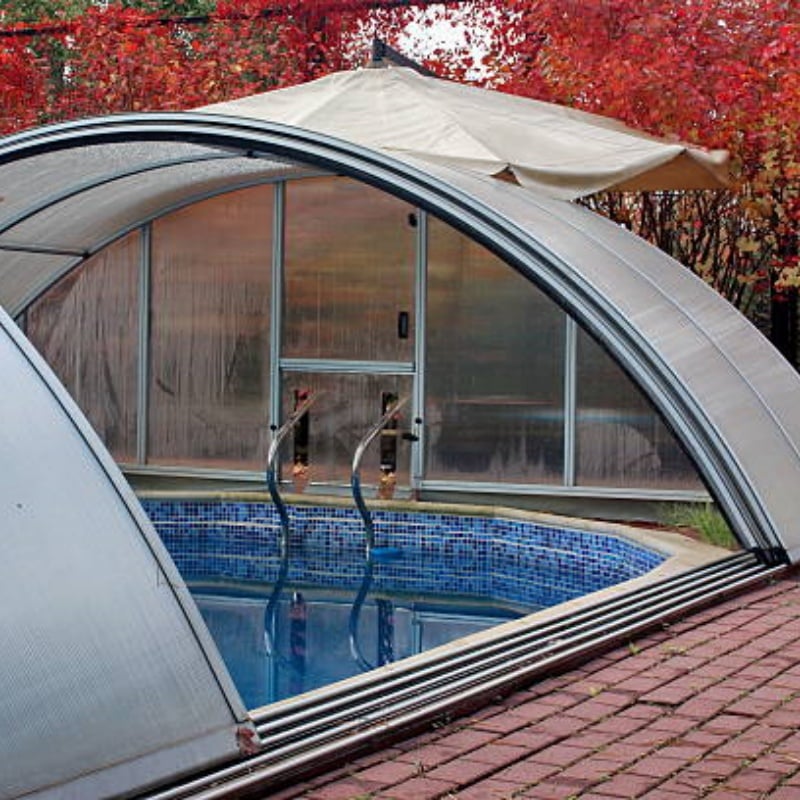Can you leave a pool uncovered all year??
If you have a swimming pool, you may be wondering whether you need to cover it during the off-season or if it's okay to leave it uncovered year-round. There are pros and cons to both options, and in this article, we'll explore them in detail so you can make an informed decision.
The Pros and Cons of Leaving Your Pool Uncovered
Leaving your swimming pool uncovered year-round has some benefits, but it also comes with a few drawbacks. Here are some of the pros and cons to consider:
Pros:
- Less Maintenance: When you leave your pool uncovered, you don't have to worry about cleaning or maintaining the cover. This can save you time and money in the long run.
- Natural Temperature Regulation: Without a cover, your pool will naturally lose heat in cooler months and absorb heat from the sun in warmer months. This can reduce your energy costs and extend your swimming season.
- No Cover Expenses: Pool covers require an initial investment as well as ongoing maintenance and repair costs. Leaving your pool uncovered means you don't have to spend money on these expenses.
Cons:
- Debris Buildup: Without a cover, your pool is susceptible to debris such as leaves, dirt, and even wildlife. This can make your pool unappealing and unsanitary.
- Chemical Imbalance: Sunlight can cause chemical imbalances in your pool water. If left uncovered, your pool may require more frequent and expensive chemical treatments to maintain proper water balance.
- Damage from Elements: Rain, wind, and extreme temperatures can all damage your pool's surface, lining, and plumbing. Without a cover, your pool is more exposed to these hazards.
When Can You Leave Your Pool Uncovered?
Whether you can leave your pool uncovered all year depends on several factors, including your climate, pool design, and personal preferences. Here are a few scenarios where it may be safe to leave your pool uncovered:
In Mild Climates:
If you live in a mild climate with relatively stable temperatures and low precipitation, leaving your pool uncovered may be an option. However, you should still keep an eye on your pool's temperature and chemical balance to ensure it remains safe for swimming.
In-Ground Pools:
In-ground pools are typically more durable and less exposed to the elements than above-ground pools. If you have an in-ground pool, leaving it uncovered may not pose as much of a risk as leaving an above-ground pool uncovered.
If Covered with Screened Enclosure:
If you have a screened enclosure that covers your pool, you may be able to leave it uncovered because the enclosure will protect your pool from debris and weather damage.
When Should You Cover Your Pool?
In most cases, it's best to cover your pool during the off-season or whenever you're not using it for an extended period. Here are a few scenarios where you should consider covering your pool:
In Extreme Climates:
If you live in an area with extreme temperatures or severe weather, it's best to cover your pool to protect it from damage. This includes areas with snow, heavy rainfall, or intense sunlight.
For Safety:
If you have children or pets, covering your pool can prevent accidents and keep your loved ones safe. Make sure your cover is secure and meets safety standards if you choose this option.
During Extended Periods of Non-Use:
If you won't be using your pool for an extended period, such as during the winter months, covering it can help reduce maintenance and prevent damage from external factors such as wildlife and vegetation.
Conclusion:
Overall, whether or not you can leave your pool uncovered year-round depends on your climate, pool design, and personal preferences. While leaving your pool uncovered may save you time and money, it can also lead to issues such as debris buildup and chemical imbalances. Conversely, covering your pool can protect it from damage and keep it safe for loved ones but comes with expenses and maintenance. Ultimately, the decision is yours to make based on your specific circumstances.

